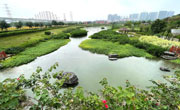Let reading return to pure reading
Recently, the “Acknowledgment” section of a Ph.D. dissertation from the Chinese Academy of Sciences telling the inspirational story of an individual’s life being changed through "reading" (“studying” and “reading” are worded the same way in Chinese, “reading” here refers more generally to studying) touched many people. The popular assumption " reading can change one’s life" once again caught people's attention. However, along the overwhelming endorsement of "reading can change one’s life", we also heard other utterances. These voices often doubt the correlation between reading and the changes in one's life, and believe reading isn’t the sole approach to changing one's life. Some simply don’t agree reading can change one's life.
Perhaps we can approach this question from different angles, and focus on discussing the significance of the question itself. On one hand, in this debate, the "reading" in the saying "reading can change one's life" more generally refers to receiving education, instead of reading books. When discussing the relationship between receiving education and reading books, it is not hard to see that while reading is an important component of education, the two concepts are not identical. However, under the notion of "reading", these two concepts are often mixed together and can lead to misunderstandings.
On the other hand, the debate over whether "reading can change one’s life" also ignores the premise, that is, do we read to change lives? If we approach this question from a utilitarian angle, many people might ask another question--is reading not supposed to change lives? But there is evident flaws in this claim. First, it overly simplifies the significance of reading. Second, it seems to have dodged another question: after one's life is changed, what should “readers” do (in Chinese, “intellectuals” is worded the same way as “readers”. Here, the saying refers to “intellectuals”)? Should they continue to read? Third, this defect is related to the confused criteria in determining what it means by "changing one's life". To put it simply, what goals should an individual achieve to be considered as having successfully changed his or her life?
Here we should return to the activity of reading itself, and pay attention to some other questions. For instance, what did I read today? Did I understand what I read? What did I gain from reading? These questions are perhaps what “readers” should be concerned about.
Reading can broaden people’s horizon, facilitate independent thinking, and cultivate critical thinking skills. Just like French Enlightenment thinker Montesquieu said, “No worry or sadness cannot be soothed by one hour of reading.” From Montesquieu’s words, it is not difficult to see that reading can also relax the readers' body and mind, let readers obtain the pure joy of reading. Through reading, “readers” acquire the key to open countless unknown worlds, and can roam freely in the new realms opened up by literature.
Through reading, intellectuals inherited and continued the knowledge and wisdom accumulated by scholars of the past. When reading, “readers” can understand the world around them, feel the vicissitudes of life, and actualize self-value and the meaning of life. They can reach the state described by Song Dynasty scholar Zhang Zai, "To ordain conscience for Heaven and Earth, to secure life and fortune for the people, to continue lost teachings for past sages, to establish peace for all generations."
In a word, this debate might never reach a definite conclusion. Then, why don’t we lay aside the dispute, pick up a book from the bookshelf, and start reading?
Writer: Huang Qiang, Lecturer at School of English and International Studies, Beijing Foreign Studies University
[ Editor: JYZ ]










More From Guangming Online
Medics from Fujian leave for Shanghai to aid in battle against COVID-19 resurgence
New int'l land-sea transport service to Indo-China Peninsula launched
Another makeshift hospital under construction in Shanghai
Tourists view tulips in Suiping County, Henan
In pics: blooming gagea flowers on grassland in Zhaosu, Xinjiang
Greek workers stage 24-hour general strike over high prices